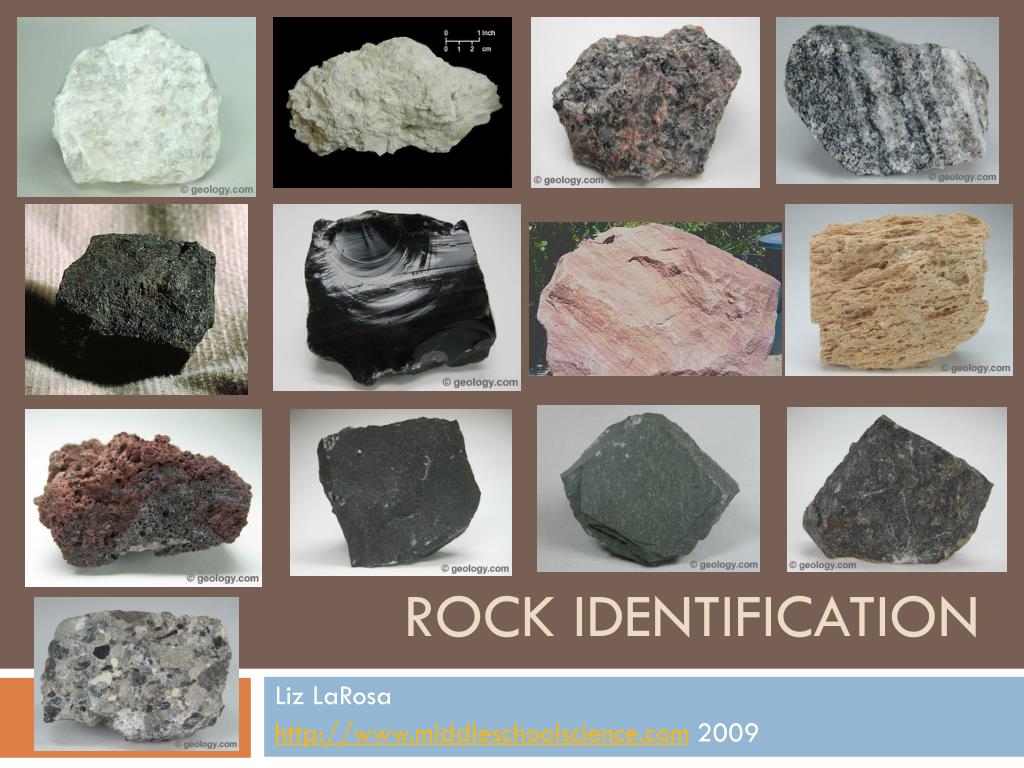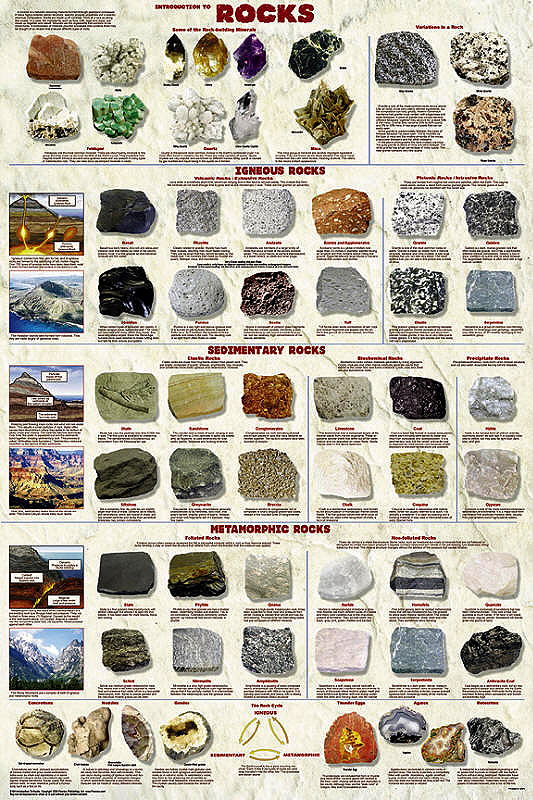Printable Rock Identification Chart
Printable Rock Identification Chart - Using your senses and the scheme for sedimentary rock identification, you will be able to first classify and identify the rocks and their environments of formation. A guide to help you identify rocks by their characteristics, minerals, and rock cycle. First, take some time to. Learn how to identify your rocks based on their physical properties, such as color, luster, grain size, and banding. Grains feel gritty and are silt, sand, or pebble size. Includes a rock key with photos and descriptions of igneous, sedimentary, and metamorphic rocks. First determine composition, which is based on mineral content or color, if you can’t. The rock is sedimentary (siltstone, sandstone or conglomerate). To identify (name) igneous rocks, you determine two things about the rock: Rock is black, soft, brittle, shiny in places. Includes a rock key with photos and descriptions of igneous, sedimentary, and metamorphic rocks. Learn how to identify your rocks based on their physical properties, such as color, luster, grain size, and banding. A guide to help you identify rocks by their characteristics, minerals, and rock cycle. The rock is metamorphic (slate). If you have rocks in your garage or back yard, go get them and see if you can find any coarse grained intermediate colored plutonic rocks. Breccias formed by collapsed caves may have white calcite crystals cementing the rock together. First determine composition, which is based on mineral content or color, if you can’t. Using your senses and the scheme for sedimentary rock identification, you will be able to first classify and identify the rocks and their environments of formation. First, take some time to. For each rock type, the tables list characteristics like grain size, color, hardness, and composition. The rock is igneous (basalt or pumice). Grains feel gritty and are silt, sand, or pebble size. Rock is soft and may be. To identify (name) igneous rocks, you determine two things about the rock: The document describes various igneous and sedimentary rocks, listing their names, typical colors, grain sizes, textures, mineral compositions, densities, origins, and common uses in. Rock has hard, flat sheets that split off. Rock is black, soft, brittle, shiny in places. Breccias formed by collapsed caves may have white calcite crystals cementing the rock together. Rock is soft and may be. First determine composition, which is based on mineral content or color, if you can’t. First determine composition, which is based on mineral content or color, if you can’t. Here's how to identify 44 of the most common igneous, sedimentary, and metamorphic rock types with a handy rock identification chart. Includes a rock key with photos and descriptions of igneous, sedimentary, and metamorphic rocks. Print free rock & mineral identification flow charts hand lenses, streak. If you have rocks in your garage or back yard, go get them and see if you can find any coarse grained intermediate colored plutonic rocks. Includes a rock key with photos and descriptions of igneous, sedimentary, and metamorphic rocks. The rock is sedimentary (coal). A guide to help you identify rocks by their characteristics, minerals, and rock cycle. Using. Rock is soft and may be. It came with over 150 pieces and 30. Why didn’t we test some samples (like sandstone and conglomerate) to see if. Rock is black, soft, brittle, shiny in places. 38 numerical list of rocks &. 38 numerical list of rocks &. Breccias formed by collapsed caves may have white calcite crystals cementing the rock together. The rock is igneous (basalt or pumice). Rock is soft and may be. For each rock type, the tables list characteristics like grain size, color, hardness, and composition. Find out the common forms of silica and other. Learn how to identify your rock with basic terminology, visual inspection, hardness, streak and specific gravity tests. For each rock type, the tables list characteristics like grain size, color, hardness, and composition. It came with over 150 pieces and 30. Breccias formed by collapsed caves may have white calcite crystals cementing. The rock is metamorphic (slate). Pebbles may be of all colors and rock types. Rock is glassy or bubbly (has small holes). Rock is black, soft, brittle, shiny in places. Breccias formed by collapsed caves may have white calcite crystals cementing the rock together. Here's how to identify 44 of the most common igneous, sedimentary, and metamorphic rock types with a handy rock identification chart. Learn how to identify your rocks based on their physical properties, such as color, luster, grain size, and banding. First determine composition, which is based on mineral content or color, if you can’t. Rock is glassy or bubbly (has. Learn how to identify your rock with basic terminology, visual inspection, hardness, streak and specific gravity tests. If you have rocks in your garage or back yard, go get them and see if you can find any coarse grained intermediate colored plutonic rocks. First determine composition, which is based on mineral content or color, if you can’t. Find out the. Learn how to identify your rock with basic terminology, visual inspection, hardness, streak and specific gravity tests. If you have rocks in your garage or back yard, go get them and see if you can find any coarse grained intermediate colored plutonic rocks. Here's how to identify 44 of the most common igneous, sedimentary, and metamorphic rock types with a handy rock identification chart. First, take some time to. Rock is black, soft, brittle, shiny in places. Grains feel gritty and are silt, sand, or pebble size. The document describes various igneous and sedimentary rocks, listing their names, typical colors, grain sizes, textures, mineral compositions, densities, origins, and common uses in. Using your senses and the scheme for sedimentary rock identification, you will be able to first classify and identify the rocks and their environments of formation. 38 numerical list of rocks &. Compare your rock to the tables and pictures of kn… To identify (name) igneous rocks, you determine two things about the rock: A comprehensive guide to rock identification, with charts, photos, and descriptions of plutonic, volcanic, metamorphic, and sedimentary rocks. The rock is sedimentary (siltstone, sandstone or conglomerate). Includes a rock key with photos and descriptions of igneous, sedimentary, and metamorphic rocks. Rock is glassy or bubbly (has small holes). Rock is soft and may be.Printable Rock Identification Chart
Printable Rock Identification Chart
Printable Rock Identification Chart
Printable Rock Identification Chart
How To Identify Minerals Chart
Printable Rock Identification Chart
Online Rock Identification Guide at Mooney blog
Printable Rock Identification Chart
Identify Rocks With Kids FREE Printable
Printable Rock Identification Chart
A Guide To Help You Identify Rocks By Their Characteristics, Minerals, And Rock Cycle.
Why Didn’t We Test Some Samples (Like Sandstone And Conglomerate) To See If.
First Determine Composition, Which Is Based On Mineral Content Or Color, If You Can’t.
Pebbles May Be Of All Colors And Rock Types.
Related Post:









